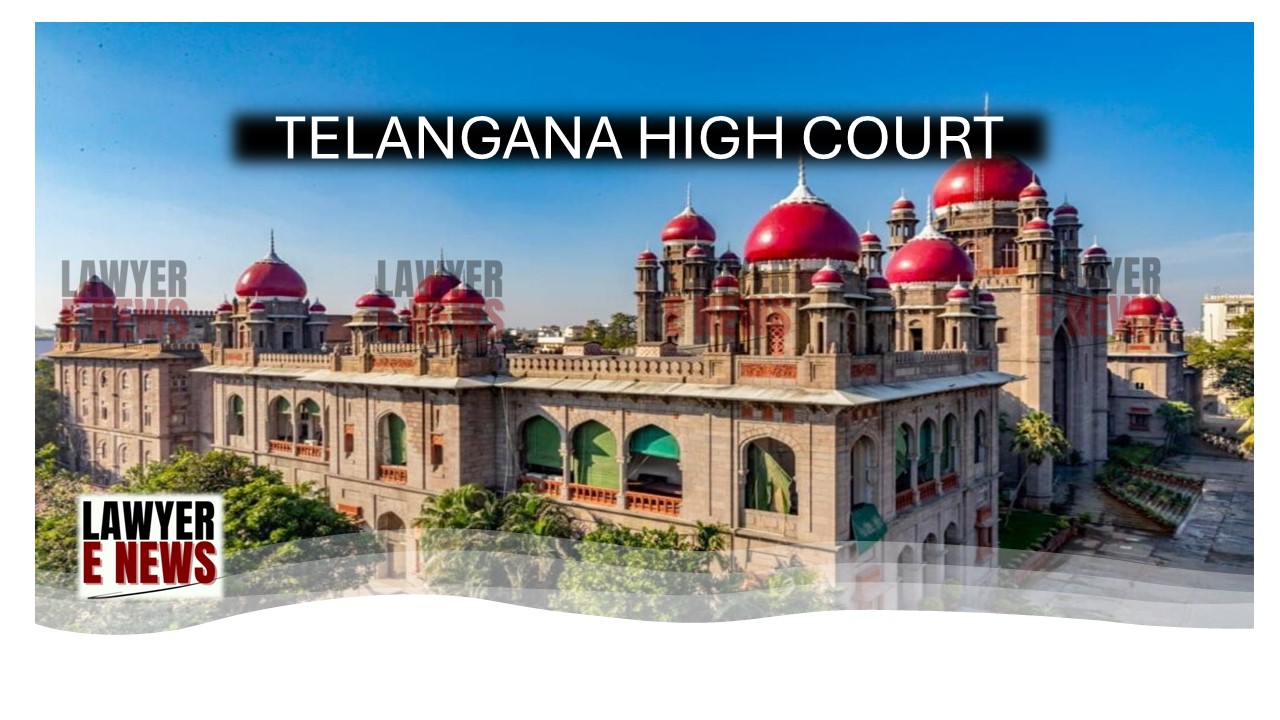-
by Admin
15 February 2026 5:35 AM



Telangana High Court dismissed a writ petition filed by the Nalgonda District Cricket Association (NDCA) against the Hyderabad Cricket Association (HCA), upholding the Ethics Officer and Ombudsman’s decision from June 2024. The petitioners sought to overturn the Ombudsman’s order, claiming it was illegal and fraudulent. However, the court ruled that the petition was not maintainable, as the dispute was a private matter between the associations under the Societies Registration Act.
The key observation by the court, delivered by Justices Challa Kodanda Ram and Nagesh Bheemapaka, was that the dispute between NDCA and HCA was a private matter, not involving public duty. The court emphasized that the Ombudsman acted similarly to an arbitrator in a private contract, making a writ petition under Article 226 of the Constitution of India inappropriate. The court referenced a 2021 ruling in Mohammed Azharuddin vs. K. John Manoj that limited the scope of judicial review over decisions made by sports ombudsmen.
The NDCA, represented by Srinivas Chakravarthy, filed the writ petition challenging the Ombudsman's June 14, 2024, decision, which recognized the leadership of Syed Ameenuddin over the NDCA. Ameenuddin had been recognized by the HCA since 2011, after an earlier dispute involving another individual, Shankar Rao, was amicably resolved. Over the years, Ameenuddin's faction paid membership dues and participated in various cricket activities, including league matches under HCA's aegis.
The petitioners argued that an earlier decision in 2011 (S.O.P. No. 587 of 2011) by the Principal District Judge, Nalgonda, should have been considered by the Ombudsman. However, the court noted that this case had no bearing on the current dispute, and the NDCA, represented by Ameenuddin, had been continuously recognized by the HCA for over a decade.
Legal Issue: Can Article 226 Be Used to Challenge Ombudsman’s Orders?
The central legal question was whether a writ petition under Article 226 of the Constitution could challenge a private dispute resolved by an Ombudsman appointed under an association’s bylaws. The court ruled negatively, noting that the relationship between the clubs and the HCA was governed by internal regulations, making civil litigation, not a writ petition, the appropriate remedy. The court cited similar cases, such as V. Durga Prasad v. Andhra Cricket Association (2022), to reinforce its view that the Ombudsman’s decisions are akin to arbitral awards in private disputes.
No Public Duty Involved: The court noted that the dispute was purely private and that there was no element of public duty involved, which would have justified judicial review under Article 226.
Fair Process Observed: The Ombudsman provided a fair opportunity to the petitioners, and there was no procedural defect in the order being challenged.
Delay and Laches: The petitioners were also criticized for waiting over a decade to challenge the Ombudsman’s earlier decisions. The court cited a recent Supreme Court ruling in Mrinmoy Maity v. Chanda Koley (2024), which emphasized that delay defeats equity in legal claims.
The Telangana High Court dismissed the writ petition, holding that NDCA failed to establish any fraud in the Ombudsman’s order and had also delayed challenging the HCA’s recognition of Ameenuddin's leadership. The court left the petitioners to pursue their remedies in civil court, affirming that the Ombudsman’s decision stood unchallenged.
Date of Decision: October 3, 2024
Nalgonda District Cricket Association vs. Hyderabad
